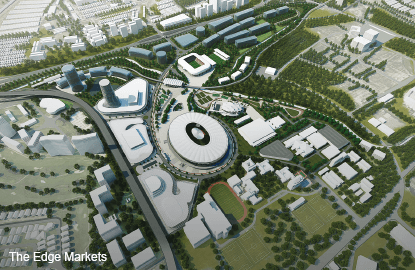
This article first appeared in The Edge Financial Daily, on March 9, 2016.
KUALA LUMPUR: Total Sports Asia (TSA), a pioneer in the sports marketing industry in Asia, has been appointed by Malaysia Stadium Corporation (PSM) to strategise and oversee the commercialisation of Kuala Lumpur Sports City (KL Sports City), which will include the redevelopment of Bukit Jalil National Sports Complex.
In a statement yesterday, TSA said its role is to develop new commercial opportunities, including name rights to KL Sports City, and the individual venues, including the National Stadium and Putra Stadium.
In addition, new hospitality suites, and other licensing and branding opportunities will be available for corporate clients, it said.
PSM chief executive officer (CEO) Azman Fahmi Osman said the partnership with TSA will help achieve PSM’s vision in regenerating Bukit Jalil National Sports Complex by increasing its commercial value, finding the right corporate partners to generate new revenue streams and becoming a model for other stadiums in the country.
TSA group CEO Marcus Luer said the company is excited to work with PSM and Malaysian Resources Corp Bhd, whose subsidiary Rukun Juang Sdn Bhd is responsible for the ongoing redevelopment of the National Stadium.
“Our benchmarks are the best sports-entertainment complexes in the world and Kuala Lumpur will finally have one to call its own.
“We will bring in best practices from around the world, from the O2 in London to the Staples Centre in Los Angeles, and will customise unique partnership opportunities for companies here in Malaysia,” said Luer.
He added that potential partners will see huge value in the KL Sports City project quickly, as it will provide a whole new way of thinking in terms of branding and customer engagement.
The ongoing redevelopment of the National Stadium by Rukun Juang is the first phase of the development of KL Sports City.
Phase 1 includes targeted works on Putra Stadium and the National Hockey Stadium that will improve integration to the current and existing public transportation links, and increase access across the site. Once completed, the redeveloped stadium will host the SEA Games in 2017.
Phase 2, which will commence in early 2018, will create a fully integrated sports hub, consisting of new, world-class infrastructure including elite sports training facilities, a sports rehabilitation science centre, a youth park, public sports facilities, a sports museum, youth hostel, convention centre and sports-focused retail mall.